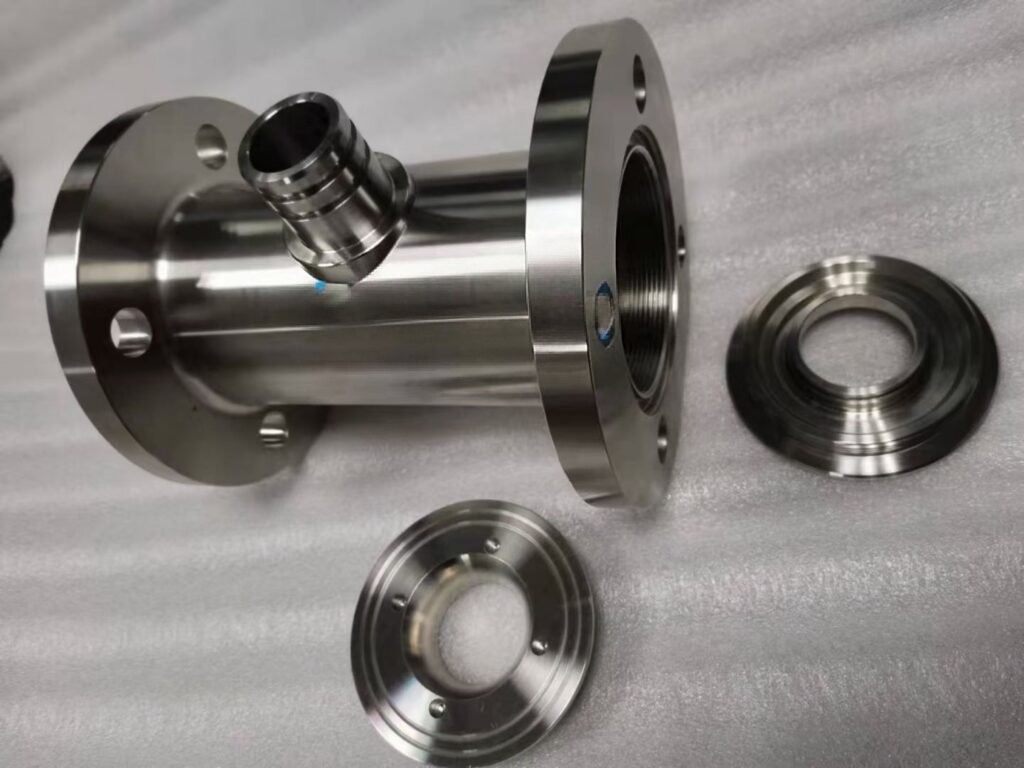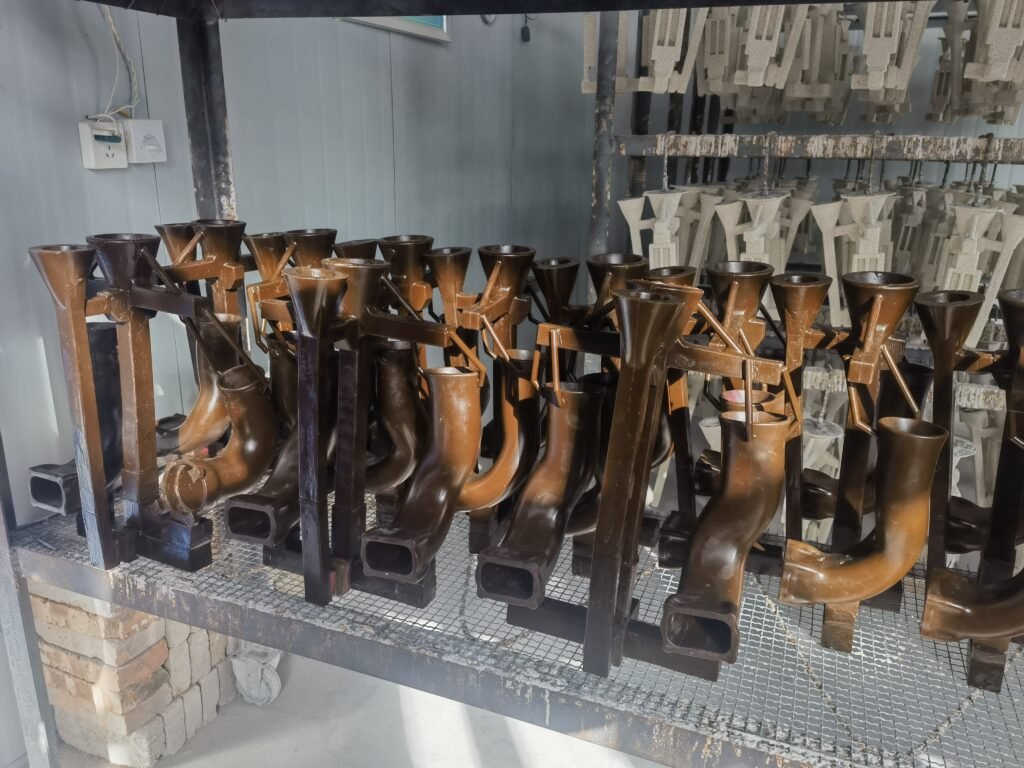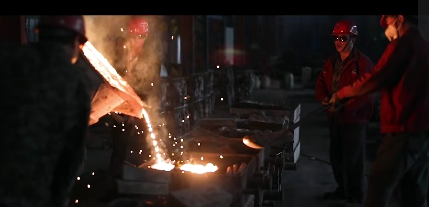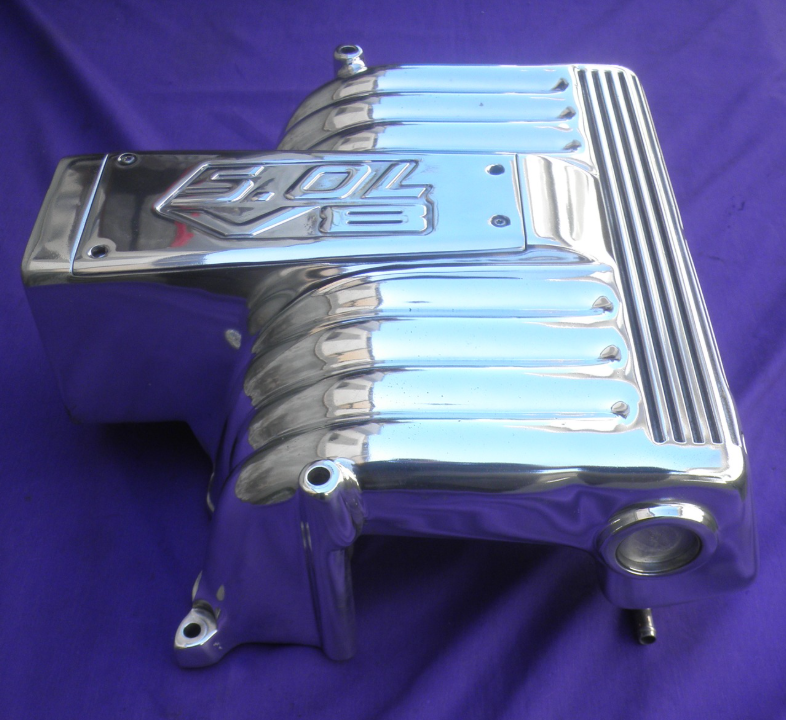Introduction
When components face extreme heat, high pressure, or corrosive media, failures trigger costly downtime and safety risks. The challenge is finding a material that resists creep, corrosion, and structural weakening under relentless stress. Nickel alloy casting solves this—its high-performance chemistries deliver exceptional heat tolerance, corrosion resistance, and long-term strength for your most critical applications.
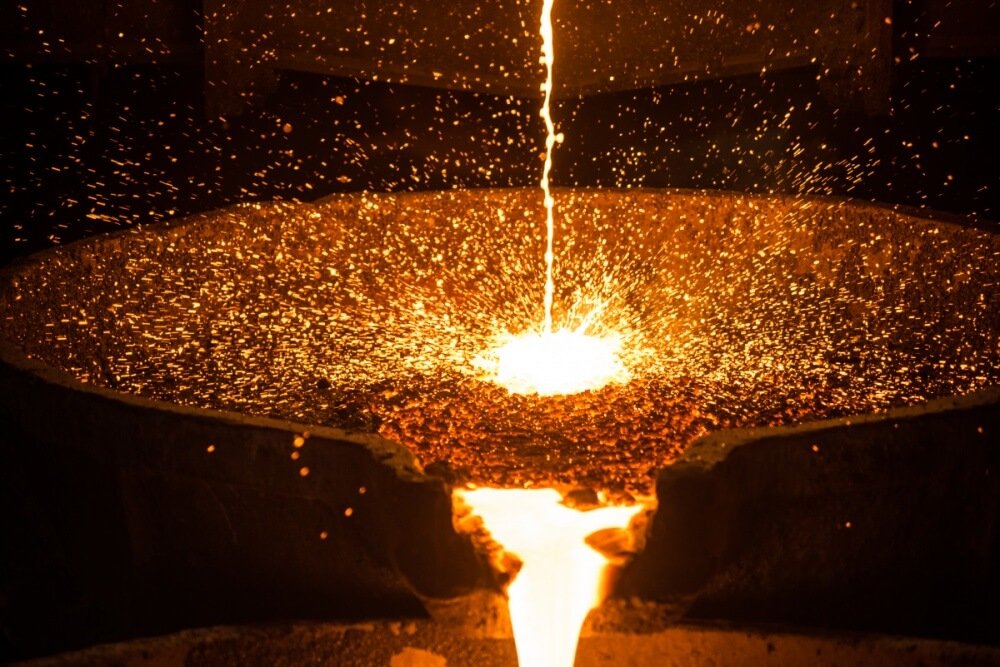
1. Core Principles of Your Nickel Alloy Casting
This nickel alloy casting is utilized chiefly for its dual resistance to intense heat and corrosion. These alloys are foundational for components in harsh service conditions where lesser materials would degrade rapidly. Their specialized metallurgical properties make them indispensable in demanding industries.
What are the main nickel alloys?
Here’s the deal: The most common families of nickel base materials are selected for their specific strengths. You will frequently encounter Monel (Nickel-Copper) and Inconel (Nickel-Chromium-Molybdenum) in industrial settings. These primary types form the backbone of high-performance alloy selection.
Why are they considered premium materials?
You might be wondering: Nickel alloy castings are typically reserved for the most extreme conditions where performance is non-negotiable. Their superior properties justify the investment over more common metals like stainless steel. Their cost is higher because their performance cannot be easily replicated by other alloys.
How does composition define an alloy?
The bottom line is: The specific elements blended with nickel determine the alloy’s primary characteristics and ideal applications. For example, Monel includes a significant amount of copper for corrosion resistance, while Inconel’s chromium content provides heat resistance. This metallurgical science is key to their superior performance in the field.
Key Takeaway: Understanding the fundamental composition of Monel and Inconel helps you select the correct material for either corrosion or heat-focused challenges, ensuring optimal performance for your specific application.
| Alloy Family | Primary Alloying Elements | Key Characteristic |
|---|---|---|
| Monel | Nickel, Copper | Superior Corrosion Resistance |
| Inconel | Nickel, Chromium, Molybdenum | Excellent Heat & Oxidation Resistance |
2. Applications of Nickel Alloy Casting
You’ll find nickel alloy casting is essential for applications where conventional metals fail due to overwhelming environmental stress. Their resilience makes them a go-to choice for components that must perform flawlessly under pressure. These castings provide unmatched durability where it matters most.
Where is it used in high heat?
What’s the real story?: Inconel alloys are particularly suited for environments subjected to both high temperatures and significant mechanical stress. They maintain their integrity in high-pressure systems and high-kinetic-energy applications. This is where aluminum or steel would suffer from creep and fail.
What about corrosive environments?
But there’s more: The inherent corrosion resistance of nickel alloys makes them ideal for chemically aggressive or marine settings. Monel, in particular, excels in these situations, making it a top choice for harsh chemical processing plants and marine applications with saltwater exposure. It is also used in critical piping systems and valves.
Why choose it over stainless steel?
Here’s the kicker: Nickel alloy casting is specified when conditions are too extreme even for robust materials like stainless steel. It offers unmatched heat resistance and superior corrosion durability. This is reserved for jobs where failure is not an option.
Key Takeaway: The decision to use nickel alloy casting is driven by the severity of the operating environment, justifying its cost when performance is critical and other materials fall short.
| Environment Type | Key Challenge | Recommended Nickel Alloy Focus |
|---|---|---|
| High-Temperature | Creep, Oxidation, Pressure | Inconel |
| Corrosive | Chemical Attack, Saltwater | Monel |
| General Purpose | Moderate Stress | Stainless Steel |
3. Key Benefits of a Nickel Alloy Casting
The advantages of using a nickel alloy casting are centered on its ability to provide long-term reliability in punishing environments. These benefits directly translate to improved safety, reduced maintenance, and superior operational efficiency. Their performance justifies the initial investment for critical components.
How does heat resistance help you?
Think about it: The ability to perform exceptionally in high-temperature applications is a primary benefit. Inconel alloys retain strength where steel and aluminum would fail due to thermally induced crystal vacancies. This allows them to resist “creep” or gradual deformation under heat.
What makes its corrosion resistance superior?
Now for the interesting part: Monel castings, for example, offer high corrosion resistance that makes them perfect for marine and chemical applications. This property prevents material degradation and extends component life significantly. This is why they are ideal for seawater valves and underwater applications.
Is strength a major factor here?
The bottom line is: Yes, maintaining structural integrity under extreme physical and thermal stress is a defining feature. This strength ensures reliability in high-stakes applications by withstanding high pressure without fracturing. It provides durability against both oxidation and chemical attack.
Key Takeaway: The three core benefits—heat resistance, corrosion resistance, and strength—work together to make nickel alloy casting the premier choice for critical system components.
| Benefit | Primary Advantage | Typical Application Example |
|---|---|---|
| Heat Resistance | Prevents material creep and failure | High-pressure turbine components |
| Corrosion Resistance | Extends service life in harsh media | Seawater pump impellers |
| Strength | Ensures structural integrity under load | Defense and military hardware |
4. Understanding Monel in Nickel Alloy Casting
As a key type of nickel alloy casting, Monel is a nickel-copper alloy prized for its exceptional resistance to corrosion. It is particularly effective in marine and chemical environments where other metals would degrade. Its unique properties make it a specialized solution for tough jobs.
What is Monel’s primary strength?
Here’s the deal: Monel’s high corrosion resistance is its defining characteristic. This makes it the go-to material for applications involving saltwater or other corrosive agents. It is highly resistant to seawater and excellent for chemical processing equipment.
Does Monel have special properties?
You might be wondering: Yes, certain Monel alloys possess a unique non-magnetic quality, which is critical for specific military and scientific applications. For this reason, it is used for anchor cables on minesweepers. It is also ideal for housing magnetic-field measurement equipment.
Where is it used in boating?
But that’s not all: In recreational boating, Monel is used for its durability in constant contact with water. Its applications range from structural components like propellers and impellers to storage solutions. This includes wire for seizing shackles and tanks for water and fuel.
Key Takeaway: Monel’s versatility, from industrial corrosion resistance to non-magnetic and marine applications, makes it a highly valuable nickel alloy casting material.
| Monel Application Area | Specific Use Case | Key Property Leveraged |
|---|---|---|
| Industrial | Piping systems, valves | Corrosion Resistance |
| Military/Scientific | Minesweeper cables, sensor housings | Non-Magnetic Nature |
| Recreational Marine | Propellers, fuel tanks | Saltwater Durability |
5. Exploring Inconel for Your Nickel Alloy Casting
When your application demands performance in extreme heat, Inconel is the premier choice for nickel alloy casting. This nickel-chromium-molybdenum alloy family is engineered to resist oxidation and maintain strength at temperatures that would compromise steel. It’s the solution for high-energy, high-pressure environments.
What is Inconel’s main feature?
The real story is this: Inconel is oxidation and corrosion-resistant, making it perfect for service in extreme environments. It’s designed for jobs where high pressure and kinetic energy are constant factors. It handles these conditions without failure where lesser metals cannot.
How does it handle extreme heat?
Now for the good part: Inconel castings retain their strength over a very wide temperature range, making them attractive for high-temperature applications. It is superior to steel in preventing heat-induced creep. This avoids thermally induced crystal vacancies that weaken other metals.
What is material “creep”?
Here’s the bottom line: Creep is the tendency of a solid material to deform permanently under persistent mechanical stresses, especially at high heat. Inconel nickel alloy casting is formulated specifically to resist this phenomenon. It is a key problem that Inconel solves, preventing a major failure point for steel.
Key Takeaway: Inconel’s primary value lies in its ability to resist creep and retain strength, ensuring structural integrity in high-temperature, high-stress machinery.
| Material | Performance at High Temperature | Susceptibility to Creep |
|---|---|---|
| Inconel | Excellent Strength Retention | Low |
| Steel | Weakens Significantly | High |
| Aluminum | Fails/Melts | Very High |
6. The Strength Advantage of Inconel Nickel Alloy Casting
The superior strength of Inconel nickel alloy casting makes it a critical material for demanding industries. This strength is not just about resisting breakage; it is about maintaining structural integrity across a wide temperature range. This reliability is why it is trusted in aerospace and power generation.
Why does Inconel maintain strength?
Think about it: Inconel’s metallurgical structure is designed to be stable even at high temperatures. Unlike steel, it doesn’t suffer from thermally induced crystal vacancies that lead to weakening. Its alloying elements like chromium and molybdenum provide that stability.
How does it really compare to steel?
Here’s the kicker: Where steel would succumb to creep and lose its load-bearing capacity, Inconel stands firm. This makes it essential for parts that operate under both heat and pressure. It offers a significant performance upgrade over steel in these conditions.
What applications need this strength?
You need to know this: Any application where a component is subjected to extreme heat while also being under mechanical stress requires Inconel’s unique strength. It’s a material for mission-critical parts like pressure vessels. You’ll find it in power generation turbine blades and aerospace engine components.
Key Takeaway: The defining strength advantage of Inconel is its ability to perform reliably at temperatures that would cause other high-strength alloys like steel to fail.
| Alloy Attribute | Inconel | High-Alloy Steel |
|---|---|---|
| Strength at Room Temp | High | Very High |
| Strength at 800°C | High | Low (due to creep) |
| Primary Failure Mode | Ultimate Tensile Strength | Creep / Deformation |
7. Common Monel Grades in Nickel Alloy Casting
Choosing the right grade is vital for your Monel nickel alloy casting project to ensure optimal performance. Different Monel chemistries are tailored for specific mechanical properties and applications. Understanding these common grades helps in making an informed selection.
Which Monel grades are available?
Here’s the deal: We provide several standard Monel grades to meet diverse needs, including Monel 400 and Monel K-500. Each has a slightly different composition for targeted results. This allows for precise material selection for your project.
What is Monel K-500 known for?
What’s the real story?: Monel K-500 is an age-hardenable alloy, meaning it can be heat-treated to increase its strength significantly. It combines the excellent corrosion resistance of Monel 400 with greater strength and hardness. This is due to added aluminum and titanium.
How do the different grades differ?
The bottom line is: Minor variations in elements create distinct properties for each grade. For example, Monel 400 is a versatile general-purpose grade, while Monel K-500 provides superior strength. This allows you to select a material fine-tuned for your specific challenge.
Key Takeaway: Selecting the correct Monel grade is crucial for balancing corrosion resistance, strength, and machinability in your nickel alloy casting.
| Monel Grade | Key Feature | Primary Use Case |
|---|---|---|
| 400 | General Corrosion Resistance | Marine hardware, chemical processing |
| K-500 | High Strength, Hardness | Pump shafts, impellers, valve components |
8. Popular Inconel Grades for Nickel Alloy Casting
The Inconel family offers a wide range of options for your nickel alloy casting, each optimized for specific extreme environments. Grades like 625 and 718 are industry standards for high-temperature strength and corrosion resistance. Selecting the right Inconel grade is a critical engineering decision.
What are the main Inconel grades?
You might be wondering: Several Inconel grades are commonly used, each with a unique balance of properties. The most popular ones, like Inconel 625 and 718, are known for their reliability in harsh service. Inconel X-750 is another key option for specific needs.
Why is Inconel 625 so popular?
Here’s the kicker: Inconel 625 offers an excellent combination of high strength and resistance to a wide range of corrosive environments. Its versatility makes it a workhorse alloy with outstanding fabricability. It contains high levels of nickel, chromium, and molybdenum.
What about the Inconel 718 grade?
You need to know this: Inconel 718 is a high-strength, precipitation-hardenable alloy renowned for its exceptional performance at high temperatures up to 700°C (1300°F). It maintains high yield and tensile strength at temperature. This makes it a top choice for aerospace parts.
Key Takeaway: While both are premier alloys, Inconel 625 is a versatile corrosion-resistant choice, whereas Inconel 718 excels in high-strength, high-temperature applications.
| Inconel Grade | Primary Advantage | Typical Industry |
|---|---|---|
| 625 | Versatile Corrosion Resistance | Chemical Processing, Marine |
| 718 | High-Temp Strength | Aerospace, Power Generation |
| X-750 | Creep-Rupture Strength | Gas Turbines, Rocket Engines |
9. Comparing Chemistries for Your Nickel Alloy Casting
A deep look at the chemistry is essential when specifying a nickel alloy casting for your project. The precise percentages of elements like Chromium, Molybdenum, and Copper define the material’s behavior. This data-driven approach ensures your components meet exact performance criteria.
How much nickel is in Inconel?
Here’s the deal: Inconel alloys are majority nickel, which provides the foundation for their heat and corrosion resistance. For instance, Inconel 625 has a minimum of 58% Nickel. Inconel 718 contains 50-55% Nickel, with the exact percentage varying by grade.
What is chromium’s primary role?
What’s the real story?: Chromium is a critical element for providing oxidation and corrosion resistance at high temperatures. It forms a passive, protective oxide layer on the surface of the casting. Inconel 625 contains 20-23% Chromium to achieve this effect.
What about other key elements?
The bottom line is: Elements like Molybdenum (Mo) and Niobium (Nb) are added to impart specific properties like strength and resistance to pitting corrosion. Molybdenum (8-10% in Inconel 625) enhances pitting resistance, while Niobium provides stiffening. Understanding these minor additions is key.
Key Takeaway: The specific chemical recipe of each nickel alloy casting grade is meticulously designed to produce a predictable set of performance characteristics for demanding applications.
| Element | Primary Role in Nickel Alloys | Example Grade & Content |
|---|---|---|
| Nickel (Ni) | Base for heat/corrosion resistance | Inconel 600 (72%+) |
| Chromium (Cr) | High-temp oxidation resistance | Inconel 625 (20-23%) |
| Molybdenum (Mo) | Pitting corrosion resistance, strength | Inconel 625 (8-10%) |
10. Partnering for Your Nickel Alloy Casting
Choosing the right foundry is as critical as selecting the correct material for your nickel alloy casting. You need a reliable partner with proven expertise in handling these complex, high-performance alloys. precisionvast Castings provides the experience and quality control necessary for your most demanding projects.
Why does foundry expertise matter?
Think about it: Casting nickel alloys requires specialized knowledge of melting, pouring, and heat treatment. An experienced foundry ensures your components meet strict metallurgical and dimensional specifications. This prevents common casting defects and guarantees mechanical properties.
What should you look for in a partner?
You need to know this: Look for a foundry with a track record of producing high-quality nickel alloy components. Certifications like ISO 9001:2015 demonstrate a commitment to quality and process control. They should have proven experience with Monel and Inconel.
How can we assist your project?
Here’s our offer: We are dedicated to providing nickel alloy casting solutions that enhance the efficiency and productivity of your operations. Our team is ready to discuss your specific requirements directly with our experts. Partner with an ISO 9001:2015 and ABS Approved Foundry.
Key Takeaway: Partnering with an expert foundry like Precisionvast Castings is the final, crucial step to ensuring your nickel alloy casting project is a success.
| Partner Quality | Importance for Nickel Alloy Casting | QCC Commitment |
|---|---|---|
| Expertise | Prevents costly defects and ensures performance | Decades of experience with nickel alloys |
| Quality Control | Verifies material integrity and specifications | ISO 9001:2015 & ABS Approved |
| Collaboration | Ensures the final product meets application needs | Direct consultation and custom quotes |
Conclusion
Stop letting component failure dictate your operational limits. The extreme heat, pressure, and corrosive forces that degrade standard metals are no match for the engineered resilience of nickel base castings. Precisionvast Castings provides the definitive solution with expertly produced Monel and Inconel components designed for the harshest environments. Contact us today to fortify your operations with the strength of nickel alloy.
Frequently Asked Questions (FAQ)
- Q1: What’s the best nickel alloy for marine use? Monel is undoubtedly the best choice. Its high copper content provides exceptional resistance to saltwater corrosion, making it ideal for piping, valves, propellers, and underwater hardware where other metals would quickly fail.
- Q2: Can nickel alloy casting handle extreme heat better than steel? Yes, absolutely. Inconel grades are specifically designed to retain their strength at high temperatures where steel would weaken and suffer from “creep,” making Inconel the superior material for applications like gas turbines and high-pressure systems.
- Q3: Why is nickel alloy casting more expensive? The higher cost is a direct result of the price of raw materials like nickel and chromium, as well as the specialized processes required to cast these alloys correctly. The cost is justified by their unparalleled performance where nothing else works.
- Q4: Are there non-magnetic nickel alloy casting options? Yes, certain Monel alloys are completely non-magnetic. This unique property makes them essential for specialized applications like housing for sensitive magnetic-field measurement equipment or for use on naval minesweepers to avoid magnetic detection.
- Q5: How do I choose between Monel and Inconel casting? The choice is simple: prioritize Monel for superior corrosion resistance, especially in marine or chemical environments. Choose Inconel for superior heat resistance and strength retention in high-temperature, high-pressure applications.


